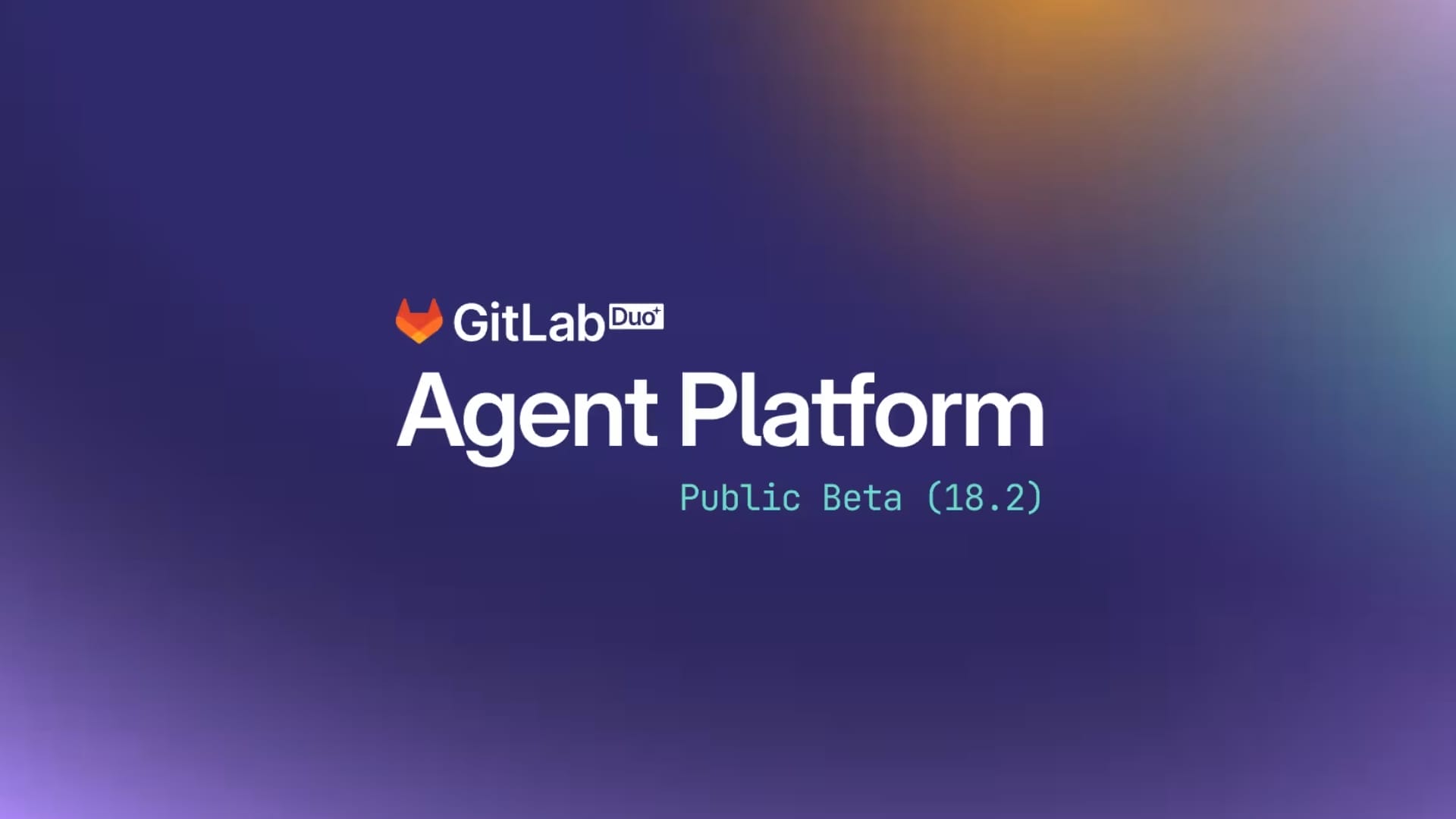GitLab launches public beta of Duo Agent Platform to support AI-human collaboration
GitLab launches the public beta of Duo Agent Platform, enabling AI agents to collaborate asynchronously with developers.

GitLab Inc. has launched the public beta of GitLab Duo Agent Platform, a new DevSecOps orchestration platform designed to help developers work asynchronously with AI agents. The announcement was made on 18 July and is available to all GitLab Premium and Ultimate users through integrated development environments (IDEs) and the Web UI.
The platform introduces an intelligent orchestration layer that allows developers and AI agents to collaborate dynamically rather than through isolated, linear workflows. By leveraging GitLab as the central system of record for software development, Duo Agent Platform gives AI agents the necessary context—such as project structures, issue tracking and codebase history—to make informed, standards-compliant decisions.
New features in the public beta release
The public beta introduces a number of key capabilities. These include a multi-agent software development flow that collects context, clarifies ambiguities with developers, and plans strategic changes to codebases. The platform makes use of project history, structure, and GitLab features such as issues and merge requests to guide these tasks.
GitLab Duo Agentic Chat is now available within IDEs and on the GitLab Web UI. In IDEs, the chat goes beyond simple Q&A to offer stateful, iterative feedback and task delegation. Developers can use slash commands such as /explain, /tests, and /include to quickly define intent and provide context from files, issues, or dependencies. They can also personalise agent behaviour using natural language rules based on their team’s coding standards or organisational policies.
On the Web UI, GitLab Duo Agentic Chat acts as a true DevSecOps assistant, using non-code context and direct access to repositories to support wider development workflows. Support has also been added for JetBrains IDEs—including IntelliJ, PyCharm, GoLand, and WebStorm—allowing users to install or activate Duo Agentic Chat with minimal setup.
The release also includes support for the Model Context Protocol (MCP), which allows Duo Agentic Chat to connect with both remote and local MCP servers. This makes it possible for agents to interact with third-party systems that expose services via MCP, extending the agents’ utility across a broader range of tasks.
GitLab has committed to monthly updates through its 18.x release cycle, with general availability expected by the end of 2025.
Industry feedback and future outlook
Bal Kang, Engineering Platform Lead at NatWest, said the platform has already made a positive impact: “GitLab Duo Agent Platform enhances our development workflow with AI that truly understands our codebase and our organisation. Having GitLab Duo AI agents embedded in our system of record for code, tests, CI/CD, and the entire software development lifecycle boosts productivity, velocity, and efficiency. The agents have become true collaborators to our teams, and their ability to understand intent, break down problems, and take action frees our developers to tackle the exciting, innovative work they love.”
Rachel Stephens, Research Director at RedMonk, highlighted the need for such tools in the evolving DevSecOps landscape. “As software development workflows grow in complexity and organisations look to leverage AI, there’s an increasing need for platforms that can integrate AI capabilities without adding to existing disjointed toolchains. As a DevSecOps platform, GitLab is already positioned to help developers collaborate both synchronously and asynchronously. Now the GitLab Duo Agent Platform intends to take this a step further, helping developers also integrate AI agents into their workflows.”
GitLab CEO Bill Staples called the launch a major shift in how software is built. “Today marks a pivotal moment in software development as we introduce the public beta of the GitLab Duo Agent Platform, the first DevSecOps orchestration platform designed to unlock asynchronous collaboration between developers and AI agents. GitLab Duo Agent Platform isn’t just another AI tool; it’s a fundamental reimagining of software development from isolated, linear processes into dynamic, intelligent collaboration. By leveraging GitLab’s unique position as the system of record for the entire software development lifecycle, we’re providing AI agents with unprecedented context and capabilities. This enables our customers to work with AI agents that have comprehensive context about their codebase, their workflows, and their organisational goals to help boost productivity, velocity, and efficiency.”
















